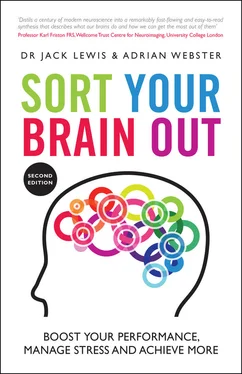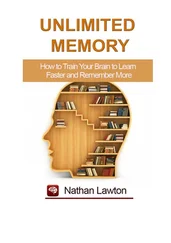Another aspect of time‐displacement worth mentioning is that unless you're managing to exercise at the same time (very possible with virtual reality, but highly unlikely with conventional video games), spending endless hours in front of a screen, whether a TV, PC, laptop, tablet, games console or phone screen, isn't going to do anyone any favours in the physical health department. Excessive amounts of screen use has been directly blamed for the current global obesity pandemic, increasing rates of cardiovascular disease and Type 2 diabetes.
In 2005, a South Korean man named as Lee Seung Seopp dropped dead of heart failure after playing a game called StarCraft for over 50 hours straight. His obsessive game play displaced precious time that he could have spent ensuring that he ate and drank enough to stay alive.
In 2007, a Chinese man named Zhang died suddenly after playing World of Warcraft continuously for seven days.
In 2009, back in South Korea, a 41‐year‐old man and a 27‐year‐old woman became so obsessed with an online role‐playing game involving caring for a virtual infant that, in a horribly ironic twist, they accidentally starved their own real‐life, three‐month‐old baby girl to death.
You might be forgiven for thinking that this problem is specific to East Asia, but that isn't the case. Digital innovations have historically been made available (and embraced) earlier in these countries, before much of the rest of the world got their hands on them. Observing the negative outcomes of digital over‐immersion among these early adopters gives the rest of the world a valuable heads up, helping them to take preventative measures to avoid repeating such unfortunate and lethal scenarios.
In May 2019, gaming addiction was officially classified as a disease by the World Health Organisation and six months later the UK's National Health Service inaugurated its first National Centre for Gaming Disorders.
Not that long ago it was rare for people to watch TV while simultaneously surfing the internet. Now such “dual‐screening” is commonplace. Studies investigating this behaviour revealed that people switch their attention between screens on average about 120 times during a 30‐minute viewing period. That's about four times per minute or once every 15 seconds! Could this herald a brave new era of prolific multitasking, enabling us to squeeze yet more efficiency out of our busy, information overloaded lives?
The first thing to get to grips with is that there is no such thing as true multitasking. Yes, we can walk down the street while talking on the phone, but that's partly because our walking expertise is so innate that we can do it entirely without thinking and partly because it's governed by its own dedicated brain resources. But our brains haven't yet evolved the capacity to simultaneously perform two completely different tasks that require the same cognitive resources. The truth is that most mental tasks that feel like they are being done in parallel actually involve rapid switching between the two. And, anytime a human brain switches from one task to another, there is an associated cost. You don't pick up where you left off straight away when your mind returns to the “other” task. There is always a slight delay – known as a “switch cost” – in remembering exactly where you were so you can continue with the original task.

While women may be famous for their multitasking skills, the idea that all those tasks are actually happening in parallel is an illusion. Women who seem to have a superior ability in this regard, compared to most men, are usually better at minimizing the inevitable switch cost. While some people, through regular, intense and consistent training, have become extremely adept at making this process as efficient as possible, there is nonetheless always a small, unavoidable time penalty associated with each switch between tasks. In men the switch cost tends to be larger than in women, but there is always a measurable negative consequence of switching between multiple cognitive tasks in both, as compared to simply focusing on one task at a time.
The buzz and bleep of modern living
Smartphones are a constant source of unintended distraction, which can derail your productivity no end. “Unintended” is the critical word here because “intended” distractions are ideal for shifting gear into a different brain state. Creative thinking can really benefit from a bit of well‐timed distraction, especially when a person's brain is cluttered with anxious thoughts and stuck in rigid ruts, while tussling with seemingly unsolvable problems. Intentional distractions – those that happen at a time of our choosing – can help you to refocus the cognitive machinery and let the ideas flow more freely.
The problem with unintended distractions, like those caused by smartphone alerts notifying you about every text message, email, call or social networking update, is that your attention is repeatedly pulled away from your thought processes. Each time that happens you are robbed of the opportunity to see your train of thought through to its natural conclusion. If you allow tech to constantly interrupt your thought processes, all those distractions add up to a large bill of switch costs, many missed Eureka moments and an unproductive day at the office.
But don't our ever‐changing brains constantly adapt to help us perform better in any given environment? Surely brain pathways will be reconfigured to help us block out these minor distractions? To a certain degree, yes, this is possible – but in the absence of a tailored, intensive, training regime aimed at achieving this specific end result, it's extremely unlikely to happen by chance. It makes much more sense to switch your devices to silent, whenever possible, so that you can choose when you interrupt your flow to check for messages and missed calls.
Instant response pressure
The virtual world of social and professional networking is cunningly designed to lure us into patterns of use that get us addicted to constant interaction. This is generating a whole new, previously unknown world of stress. Teenagers and adults alike are often expected to reply immediately to any text, email, instant message or online social networking message. Teenagers who don't respond straight away risk being socially ostracised and adults face the possibility of losing out at work or in new business opportunities. Many people now feel a huge pressure to be available constantly, day and night, throughout the weekend and even on holiday.
It makes sense to do whatever we can to better manage the expectation of an immediate response to create a stress‐relieving buffer between ourselves and the cyber‐onslaught of constant connectivity. To have any hope of changing other people's expectations you need to set up a voicemail message or automatic email reply along the lines of: “Thanks for getting in touch. To improve work flow I pick up calls and emails just once or twice a day. I will endeavour to get back to you within the next 24 hours. Thank you for your patience.” The idea is that by giving them an accurate idea of when they might hear back from you, they know what to expect and realise that you're not going to be instantly available.
We can't change a culture of high expectations overnight, but little by little, starting with friends or family and then moving onto professional contacts, once everyone realizes just how important this is, we could eventually regain the right to reply at a time that is right for us.
Читать дальше













